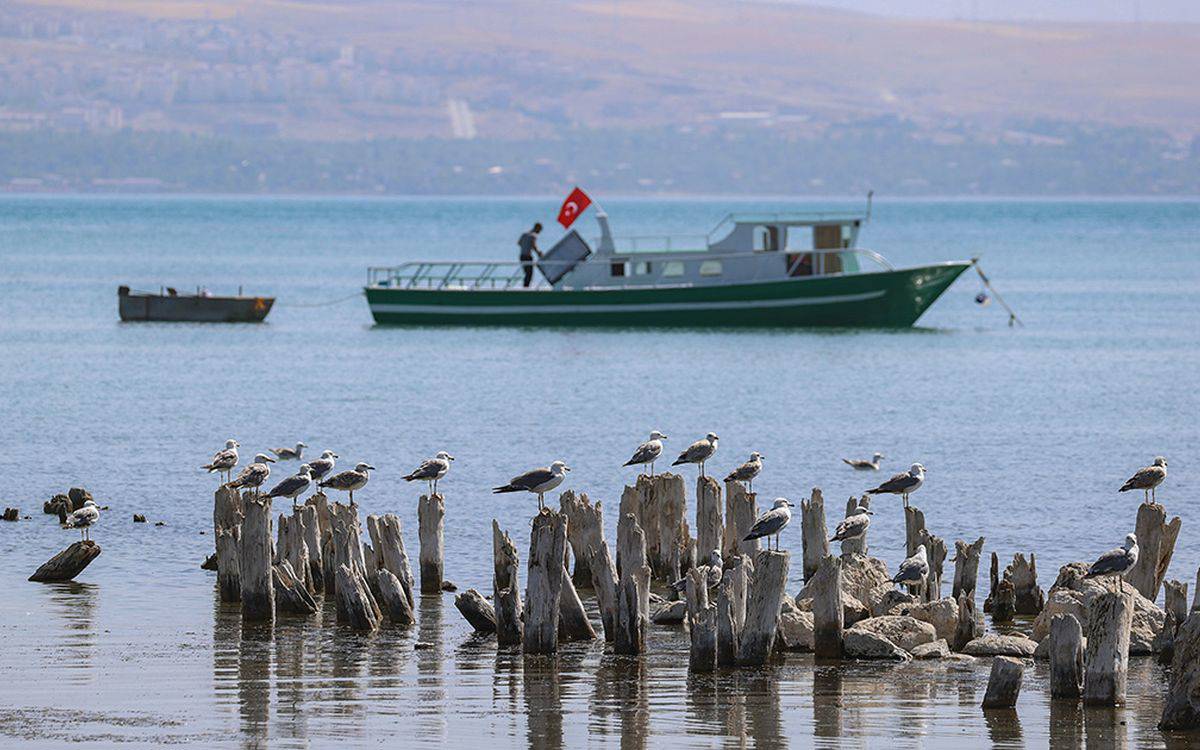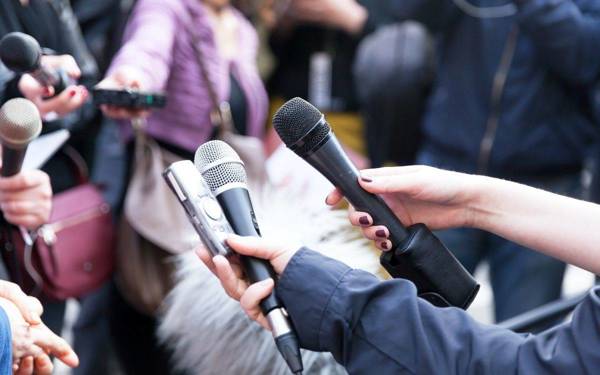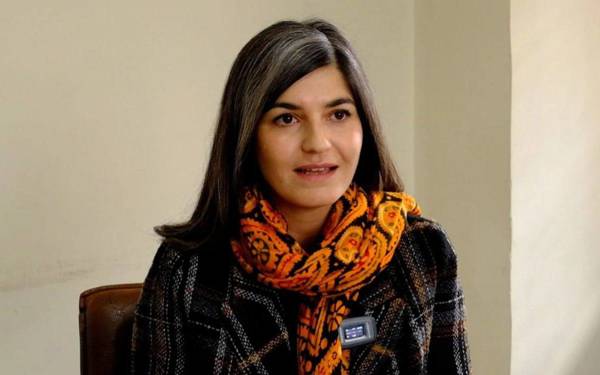The shores of Lake Van, Turkey’s largest lake in the eastern Van province, are being opened up for development, leading to ecological devastation. Ecologist Menekşe Kızıldere addressed our questions on this matter.
"Lake Van is a vital ecological entity"
What are your thoughts on the opening up of the coastal areas of Lake Van for development?
Lake Van has notably started shrinking, especially in the past two years. There are areas where the recession of the shores has exceeded two kilometers. While we know that Lake Van experiences periodic shrinkage, this current reduction appears more permanent compared to previous instances.
Even without such a significant reduction, considering the impairment of the feeding water sources due to drought and ecological devastation, we can foresee a long-term shrinkage of Lake Van. Pollution is a leading factor in this reduction. Lake Van is getting polluted by the day. So much so that administrators consider cleaning up the increasing sediment at the bottom as a service due to pollution.
By contributing to the pollution causing sedimentation and then offering the cleaning of sediment as a service, they are putting the municipality at a loss.
We see from this example what the administrators are doing, what their destructiveness entails. Lake Van is an ancient water body, a vital ecological entity. It will shape our lives and those of the yet unborn. As this entity diminishes, they bill us for the damage inflicted. Moreover, the sediment cleaning is being done incorrectly and inadequately. I urge the upcoming Co-Mayors to particularly scrutinize the sediment cleaning tenders.
The shores of Lake Van need to be protected. The lake has now begun to experience the effects of the climate crisis. Uncontrolled tourism could deprive us of Lake Van in the long run. We have entered a period where we must protect the lake. If we fail to do so, we will witness its shrinkage year by year. Drought is now a lived reality for the region. We are experiencing increasingly warmer seasons, and agricultural productivity has begun to change.
Disregarding all of this and opening up the shores of Lake Van for development would only accelerate everything. The collapse of the ecosystems established by the lake and the intertwining of drought would lead to more unproductive, hotter seasons for us.
To stand by idly while large hotels fill the lake is to approve of it and initiate ecocide for Lake Van. The people of Van are accustomed to resting not in closed facilities entered with money but in the locations they desire on the shores of the lake. The lakeshore belongs to everyone. Capital investing can only picnic on its outskirts.
"Trustees are culprits"
What are the effects of the resulting devastation on Lake Van and the creatures living in these areas?
Lake Van is an ancient water body. It has contributed to the formation of all ecosystems in the region for thousands of years. Sociologically, it has even changed those living on its shores. Our DEM Party Co-Mayoral candidate Neslihan Şedal, a sociologist, will best convey this situation. There are very important connections between all living beings around the lake and everything from economics to psychology. The lake is a significant entity for the people of the region. The Urartu civilization worshipped it as a god.
Every child who has grown up around Lake Van dreams of it. It is a very precious entity. It not only shapes the lives of the creatures in the ecosystems it has established but also the lives of humans. We now know about the decrease in the Pearl Mullet in Lake Van.
Incorrect fishing practices are certainly a factor, but supporting citizens who make a living from fishing and delivering them to healthy sales areas and cold storage facilities can be much less costly and sustainable for both the lake and the economic contributions it provides without harming it. Fishing can be regulated entirely as a labor field through cooperative organization, ensuring fair distribution of income.
We can see that the water sources feeding Lake Van are shrinking due to drought. During election campaigns in Erciş, I had the chance to go up to the highest point of the Zilan Stream. When you examine the stream from its source to where it opens into Lake Van, you see a tremendous shrinkage.
We have seen with our own eyes over the years that this ancient water body has periodically shrunk. Since Zilan has started shrinking, mass graves will be unearthed. I, along with many other citizens of Kurdish origin, demand that mass graves unearthed in Zilan, which are like family graves for many, be honored properly and turned into a memorial site. I request a place where I can pray for my grandmother's father, who never returned home. It's that simple. The Zilan stream used to be filled with otters.
Now there are very few otters left in Zilan. They are disappearing. Harming the creatures that feed Lake Van is not just disrespectful to those killed in Zilan; it is a great harm to the future inhabitants of the region who are yet to be born. This great harm is called climate crime. After violating the right to life of Lake Van's shores, we see a violation of the right to existence of the lake itself. Anyone harming Lake Van is committing a climate crime and contributing to ecocide.
In the face of this ecological devastation, what should be done, and how sensitive are ecological circles?
This sensitivity leads to those who can protect the lake not being able to focus on it due to political pressure. One of the reasons for the lasting harm to Lake Van is the administrators. Administrators are climate culprits. For every permanent damage that starts in Lake Van, they should be prosecuted on behalf of future generations.
We are at a very critical period to protect the lake. The current absurd legal text cannot solve any problem. To protect Lake Van, we need a very strict law proposed by the Grand National Assembly of Turkey that suggests permanent protection measures. As a tradition of the DEM Party, we have worked on Lake Van for many years.
Civil society needs to be much more persistent in protecting the lake. Protecting the lake is such a rightful process. Future generations will blame us for not doing it. The lake will shrink for 20 years.
This is not just the concern of those who care about ecology. Fishing has suffered this year. Vegetable and fruit production will be affected within two years. Then grain production. Eventually, it will affect animal husbandry through feed prices and opportunities. The people of the region, who produce labor in these areas, will become poorer. It is necessary to consider that drought will increase.
Lake Van is now a matter of climate crime. Those causing harm are the perpetrators of the crime, and those who do nothing are the spectators of the crime now.
(NK/EMK/VK)









